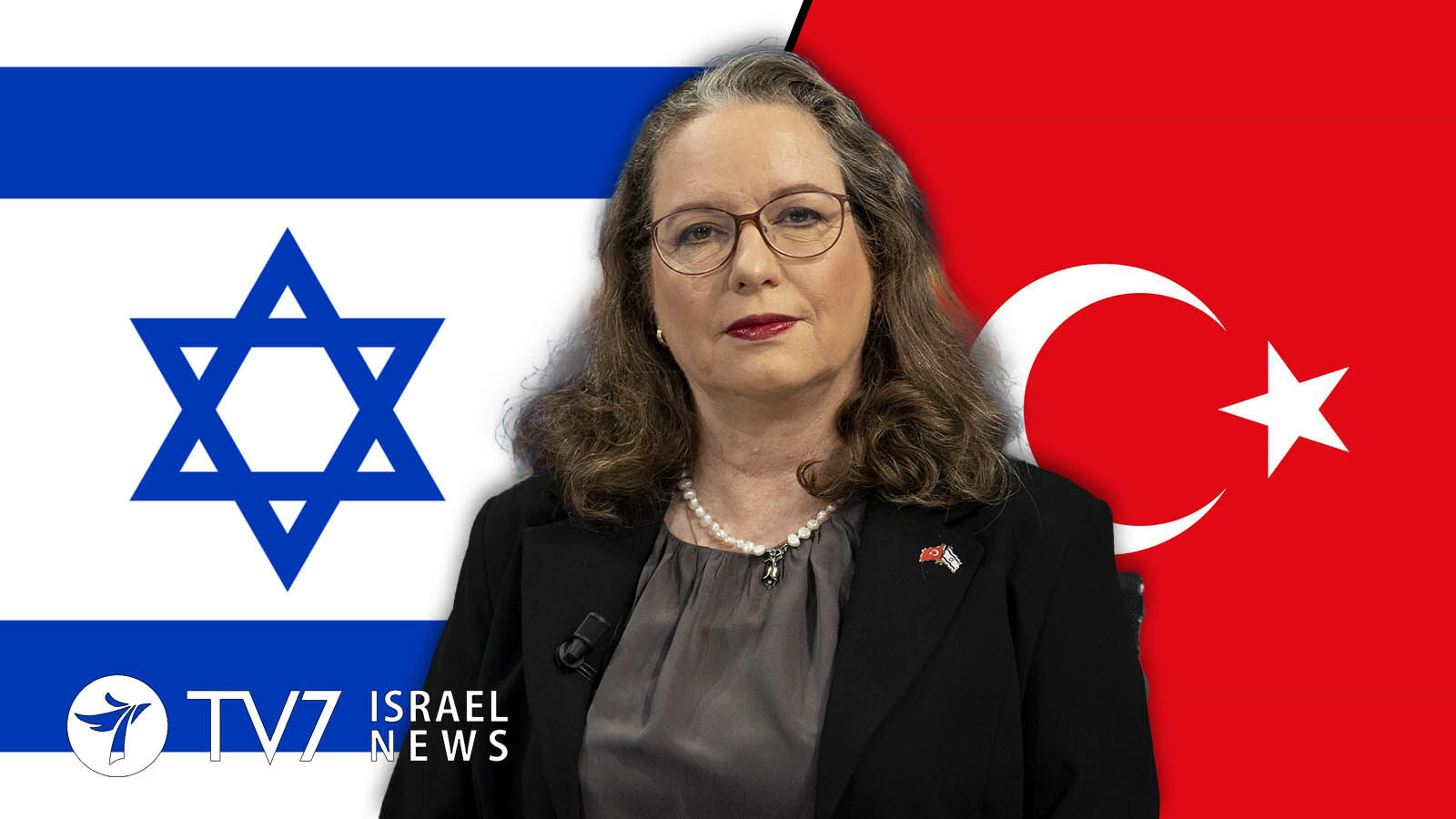Irit Lillian will serve as the first Israeli Ambassador to Turkey since 2018.
By Erin Viner
The appointment signals the rekindling of once-warm ties between the two countries.
Lillian, who has been Israel’s Charge d’Affaires in Turkey since February 2021, played a major role in the rapprochement between the two regional powers that began about a year ago.
After more than decade of acrimony, Israeli Prime Minister Yair Lapid announced the full restoration of diplomatic relations with Ankara in August.
In further signs of the strengthening ties, Lapid’s office announced that he is slated to hold talks with Recep Tayyip Erdoğan on the sidelines of the upcoming opening session of the 77th United Nations General Assembly in New York. The last time the heads of the countries met was in 2008.
“The resumption of relations with Türkiye is an important asset for regional stability and very important economic news for the citizens of Israel. We will continue to strengthen Israel’s standing in the world,” announced Israeli Prime Minister Yair Lapid issued following a conversation he held with Turkish President Recep Tayyip Erdoğan two months ago.
The breakthrough development followed “understandings reached during Prime Minister Yair Lapid’s visit to Ankara with Turkish Foreign Minister Mevlut Çavuşoğlu,” as well as “the positive developments in Israel-Türkiye ties over the past year,” said a statement from the Prime Minister’s Office (PMO), adding that, “It was decided to once again upgrade the level of the relations between the two countries to that of full diplomatic ties and to return ambassadors and consuls general from the two countries.”
“Upgrading relations will contribute to deepening ties between the two peoples, expanding economic, trade, and cultural ties, and strengthening regional stability,” said the statement.
The matter was finalized in discussion between Israeli Foreign Ministry Director General Alon Ushpiz and Turkish Deputy Foreign Minister Sedat Önal.
Onetime strong bilateral ties between the Jewish State and its strong Muslim ally were severely damaged by the 2010 Mavi Marmara incident when 10 pro-Palestinian extremists from Turkey were killed after they violently attacked Israeli commandos trying to enforce the naval blockade of the Hamas-run Gaza Strip. Israel later paid Turkey $20 million in compensation as a key component of a deal signed in June 2016 to restore ties.
The row widened again when Erdoğan condemned Israel as a “terrorist state” after 60 Palestinian rioters believed affiliated with the Islamist-Hamas terror group were killed in 2018 by the IDF during violent protests on the Gaza border.
Israel also accused Turkey of giving passports to a dozen Hamas members in Istanbul in August 2020.
This restoration of diplomatic relations is a continuation of the positive direction in the development of relations over the past year, since Israeli President Isaac Herzog’s diplomatic visit to Ankara, and the reciprocal visits of the foreign ministers to one another’s capitals, which helped to repair relations after more than a decade of tensions.
“I commend the renewal of full diplomatic relations with Turkey—an important development that we’ve been leading for the past year, which will encourage greater economic relations, mutual tourism, and friendship between the Israeli and Turkish peoples,” said President Herzog in a message on Twitter, emphasizing that, “Good neighborly relations and the spirit of partnership in the Middle East are important for us all.”
“Members of all faiths—Muslims, Jews, and Christians—can and must live together in peace,” said the Israeli leader.
The move, which comes as Israel has sought to improve ties with regional powers, comes two years after the Abraham Accords normalization pacts between the Jewish State and Bahrain, the United Arab Emirates (UAE) and Morocco.
Lillian and other new envoys were approved by Israel’s Ministry of Foreign Affairs on Sunday. Because the country is in political transition, the appointments must now be confirmed by Attorney General Gali Baharav-Miara rather than the current ‘caretaker government.’
